How do you find the newly beloved who will sit with you on the stone in the evening, on the large cleft rock by the crooked ash tree, whose trunk splays west away from the maple and east away from the ash, so together they form a single crown? And if in storm one torrid August night, when the leaves turn over and show their silver underbellies, and riffle and wag together like green sheets, if lightning takes one crashing down, the hole left will be crooked, too, open to the sky, like a shock of hair burned by the candle, cut out by scissors.
How do you choose the one who will sit with you on this rock, teasing his tail around your elbow, leaving threads on your sleeve, so that you are marked? The one who will rub his chin against your knee, his own elbows high, fur curling open like a cock’s comb, like a broom splayed apart by use and misuse? Elbows akimbo and crouching, he’ll rub his whiskers first on the rock, then on your knee: You are mine.
We had had the vet come, with her small leather bag with a sterile syringe. And the irony that the syringe that will end his life must be sterile is not what you think about now when the eighteen-year, four-month-old cat you have lived with for eighteen years, two months is about to die at your hand, in your hands, on the floor of your home. There he had lain so many evenings looking longingly at us, longing for us to come down to him, to join him on the carpeting, to reach out our hand to him as he reached out his arms to us, making himself wide as the room and showing us his belly. Isn’t it white? Isn’t it still white, not yellowed with age? It has been protected against sun and weather, against scrapes and fights, by his muscular, kicking legs, by gnawing, sometimes playful teeth. Not like his ear, torn years ago and healed into a little empty V. Not like his eye, now clouded and crusted shut, a process we watched slowly, helplessly, as the tumor just above the eye grew and grew, taking over his ear, his eye, his head. And we had thought, in April, This will be the end of him, this tumor. And here it is January, and it is the end of him.But still, he reaches to us with his limbs: Come down to me! Run your hand along my length, so I can remember how it felt to rub my sleek black body along the stones in the wall by the orchard, along the bark of the apple tree, to roll it on the cool shade moss, with threads of grass catching my fur. So I can close my old gold eyes and remember when, full of mouse or insect, I would stretch myself against the length of you, and sleep.
He lay stretched again finally, quiet, not purring, as we ran our hands along his belly one last time, saying Juno we love you. Juno we already miss you. Juno we will always love you, we love you, we love you. The vet gave him small medicine to make him relax, and we watched his lids close, and his breathing calm, and we saw his life through his eyes, and in his eyes, for the last time. Then she gave him the medicine that stopped his heart, and we kept our hands on him as his heart stopped so that we could feel his body become blank, until he was only warm, still, empty.
Then we kissed him, and I knelt over him and wept quietly, saying goodbye, Juno, goodbye. And then the vet picked him up in her arms and placed him in a box, and it was a shock to see that this was no longer him, he was no longer there. I watched her go thinking I will never see this body again. I wanted to scream Stay! Stay with me! But the deep hard place at the top of my stomach held me against the wretchedness of his disappearance into the box, and out the door, finally.
After, later, I bent to the floor and gathered, with my hands, the ghost of his soul, and scooped it to me. Later still, I found one if his hairs, and I put it onto my tongue, and swallowed.
“Isn’t it time to get a cat? You should get a cat!” our friend Elfie importuned us. She had lost her aged cat this winter, and gotten a kitten within a few weeks. It was an active cat named Isis, sleek and jet-black. She bounded around the house, dragging her toys up and down the stairs, delighting in tormenting the older calico. A couple months later, Elfie’s old Collie-Shepard mix died, too. And again, within two months there was a new puppy, yipping and peeing on the carpet, gnarling her teeth on any solid object. “My response has always been to rush right out and get another pet as quickly as possible.” Elfie told us, half-laughing. “I can’t stand not having these other little beings in the house.” They weren’t replacements for the ones she’d lost; they were replacements for the loss itself.
Steve and I married late in life, and we don’t have children. We had wanted a family, but as time wore on and hope waned, and as gray hairs sprouted from our middle-aged heads, we began to appraise our feelings about not becoming parents. The time of trying gave us time to think. If we didn’t have children, we would enjoy great freedom. We could enjoy our relationship unencumbered by the complexities of parenting. We could finance our future retirement without compromising a child’s future education. We could host parties, buy Bordeaux futures, travel in Europe, get a Ph.D. But I’m younger than Steve by thirteen years, so a marriage without children implies a dotage in which I’d be completely alone. And we both dreaded the loss and disappointment of never having shared our lives with the other people who would be our children. “I never knew how much I could love someone,” my friend Andri had said, “until I had a son.” Neither of us wanted to forsake that opportunity.
Our conversation about whether to have children was conducted over months: over wine, over supper, over tea, on walks. We thought and talked about it everywhere, on and off. And then this past winter, just around the time Juno died, we both came, almost at the same time, to the realization that the sadness could be bearable, that we could live holding it. That loss itself wasn’t fatal.
For two months after Juno died, I cried every day. Our new house, so lovingly rebuilt over the last year, seemed lifeless and hollow. It was joyless to come home from work: Where’s the cat? Nothing would replace him. We knew we would get another, someday, but were not ready, not ready yet.
Spring came slowly. One day, weeding, I noticed a brown curl of leaf resting in the greenery, and reached my hand to brush it away, but cocked my head, and squinted closely, and saw it was not a leaf but a tiny skein of baby spiders, twisted together by invisible threads, massing for warmth and safety. I called Steve over, and we marveled together at the dense packet of life, three hundred beings roiling together, and where did one stop, and where did the other begin? They were simultaneously beautiful and horrifying.
The next evening, after work, I was anxious to look in on them, to see their progress, but also to be with them as they made their way. I went to the garden and crouched by them, observing closely. They’d begun to disperse, and the first few scouts had started to string long threads to the trees nearby, while others had started to climb.
After a while I just sat by them, visiting. Steve emerged from the kitchen, carrying us each a glass of wine. I reached for mine and said, “I think we need a cat.”
We talked about a kitten. Then Steve said, How about two? Steve, who is allergic to cats, and has to take pills. Two!? Two would be fun! he said. Two will keep each other company while we’re at work! Two cats!
Two sisters, two brothers. Two who had shared a womb, when everything they needed was present, presented to them by umbilical, when each lay alongside the other in the darkness and wetness of the mother. Before there was struggle. Before they fought over the nipple. Before there were scratches and bites. Before they had names. Before they were known to me, or anyone else. When they knew only each other.
I had had both Juno and his brother, Atticus. I met them, and claimed them, one August day in 1988, when they were eight weeks old, and I was twenty-two. A friend’s cat had had gotten out, and gotten pregnant, and there were two kittens still needing homes. They were a mismatched set: Juno jet black with asymmetric white; Atticus a dark gray tabby. They bounded on the bed with their litter mates, their mother lying regally apart. I took them joyously, expectantly, but I choked back sadness at their separation. I put them in a cardboard box punched full of air holes, and toted them out the door. “You’ll be a good cat-mommy,” my friend had said. It seemed more decree than description.
I took to raising them with great seriousness. I was careful about their food, their litter, their grooming. I introduced them to the outdoors slowly, as you’re supposed to, so they gained respect for it, fear of it, joy of it. I erred on the side of caution. Still, Atticus disappeared when he was barely a year old. Days I searched the fields for him, hoping to see him coming to me from the grass, from the copse of trees, from deep inside the barn, coming forward to be forgiven, the Prodigal. But he never came, and it was weeks before I smiled again. After that I became even more protective, denying Juno the thrill of night hunting, calling him in every evening to the safety of our bright house. Sometimes chasing him, cagily, across the yard, to snatch him in. He hated confinement, but he lived to be eighteen.
Steve and I went to the humane society to see who was there. They didn’t have kittens. These, they said, would land in about four weeks, when the mother cats being fostered would arrive with their mother lode. The shelter did have two young cats, sisters. One was active and rambunctious, one was shy: Maria and Mary. They had to go together, they said, because Mary needed Maria to feel safe. There was a burly orange Tabby named Stitch who liked to climb on the handler’s shoulders. There were many black males, in a single room, playing on the cat furniture, chasing each other and chasing the string on the other end of a volunteer. There was a wall of cages, each with a cat who was a little bit sick. Not so sick as not to be at the shelter, but not so well as to be able to play with the others yet, either. And there was a separate cage, large enough for a large bird, like a Scarlett Macaw or an African Gray, except instead of a large bird, this cage held a large black cat. He was eight years old, and he was bathing unconcerned, shamelessly licking his genitals, his paws, his tail. He looked up briefly, regarded me, and went back to his work. He liked to be alone, they said.
I wanted to take them all home, and yet I wanted to take none of them home.
It was now late June. I had been wanting to call, meaning to call. Why hadn’t I called yet? I had heard three weeks ago my neighbor’s daughter’s cat was having kittens. I didn’t know the cat. I knew the girl, though, Courtney Mayers, sweet and pleasant and probably thirteen, now. Once when we were traveling she had taken care of Juno. He liked her well, and she liked him. She had come twice a day, and fed him and cleaned his litter box, for which we paid a princely sum of twenty dollars, which when you’re ten is a lot of money.I was home from work, taking a vacation day. It was beautiful early summer weather, but I was in a dour mood. I’d been fretting over a work issue imposed without regard to practicality, pragmatism, feelings. I was feeling righteous and mad. When I get mad I get depressed, because it seems safer, somehow, to sheath the anger and keep it in. The best antidote, I knew, was to stop thinking about it, or thinking about anything in any particular way.
I decided to mow the lawn. I donned boots, long pants, gloves, sunscreen, earplugs and earmuffs, sunglasses, face shield. I protected myself against the invasion of sunlight, sound, grass, rocks, flying debris. For two hours I plodded to and fro with the mower, stopping occasionally to empty the leaf bag, mounding the mulch around the birches so their feet would stay cool and damp. I noticed the places Juno and I would sit together in the last summer of his life.
When I’d finished I hosed off the mower, steam rising from the radiator, the hiss barely audible through the ear muffs. I came inside and stepped into the shower, washing off dust and exhaust, rinsing debris from my hair, my neck, but also from my toes, which had been inside two layers of socks, and one layer of boots. So how did the dust get in? Despite protection, the dust has its inevitable way of finding us.
When I emerged from the shower, hair around me in damp strings, I began to make the bed. And in making the bed, I suddenly thought, It is time.
I looked up the Mayers’s number in the Lyme phone book. This is a slim book with four digits per family. Everyone here shares the first three digits; it’s only the last four that distinguish us one from the other. I dialed and it rang six times. I was sure I would get an answering machine, but then heard the faint, affectless Hello of a teenaged girl.
I heard a rumor your cat was having kittens, I said. Yes! she brightened. She had five on June 6th. They’re three weeks old. They are all boys.
I grabbed my hat and sunglasses, and went out through the kitchen, dispensing with the formality of the front door. I wanted the quick way out. I wanted to cross the yard I’d just mowed, cross under the birches with the sapsuckers wheeling overhead. Cross by the spot where the spiders had now fled their nest.
I mounted the makeshift steps over the stone wall. The road crew had graded that morning, and the dirt was fresh and a little damp. They’d cleared the ditches, too, so the edges of the road were neat and raw, free of weeds; defined, fresh. The sky was crystal blue now, and the heat was up, and I walked the steep road, noticing the moment with excitement and suspense, thinking, How will I remember, years forward, the moment just before meeting these kittens, before my life was filled with them? How will I remember each step of this steep, breathless hill? How will I remember how the air feels on my face, the way the green, taught buds of the verbena stand poised to open, and the scent of pink milkweed blossoms, winking with swallowtails? How will I notice so I will remember, so that eighteen years hence, when I lie on the floor beside you, and you are at the end, I will remember that blue summer day when we first locked eyes? So I will hold in my mind the full arc of your life, the full blessing of your life on this green and dusty earth?
Courtney greeted me at the mudroom door, her enormous black German shepherd, Eustace, loping amiably behind, then passing by me out the door once he’d smelled I wasn’t danger. Courtney is a young woman now, not a girl. She smiled and led me into the cool, dark house, down the hall to the small bath. She parted the shower curtain to reveal a stall lined with blanket. They were nursing, all milk-sweet and sleepy, and mom looked up, happy and noble. Her name was Ally, Courtney said, and she let me reach my hand and stroke her chin, and praise her kittens and her own mother beautifulness. Then she rose, a jumble of kittens rolling from her belly, and stepped out of the shower stall briefly for a nibble and a drink to fortify herself. Left alone, the kittens fumbled over each other, unsure of their footing, probing the blanket as if to see if it would hold them before taking each shaking step. When the mother returned, she began to lick one, cleaning his legs at the base of his tail, washing away the pee and the dirt. And then two others piled together atop him, a parti-colored beast with twelve legs. These three heaved a big sigh, together, and slipped into the peaceful sleep of infants.
Two were dark tigers with white paws and belly, identical except for their noses. Two were white with orange blotches, like mother. One was all orange, muffled and nuzzling. I lifted one of the dark ones. He cried a tiny Mew! to catch his mother’s ear, or to warn the others, or just to decry the indignity of separation from the warm tangle of his brothers.
He fit in the palm of my hand! His feet were like mouse feet, so tiny and precise! His delicate arms slipped through my fingers, and his front paws splayed open, miniature claws wanding the air. He smelled like pee and damp fur, and spit and sleep and milk. If he loved me at first sight he didn’t let me know it. But babies don’t love you at first sight, though you love them. I put him back into the folds of blanket, and he quieted instantly. Then I picked up one of the white and orange ones, expecting the little scream, again, but he was calm, so calm, when I raised him to my face, and looked into his tiny blue eyes, and he looked back at me, and we stayed like that for seconds, regarding each other.
How do you know it is time? How do you become ready to open yourself to the possibility of loving, and being loved, and knowing you will lose this love? How do I know when it is time to begin the thing I have wanted for months, yet dreaded for months? This thing that will not just come to me; this thing I must make happen. There are no spirits guiding the answer; I am joyful and I am in tears, because I am here at the beginning, when they are infants. I cannot pick my children. But I can pick you. This will fill me with joy, and it will tear the joy away from me at the end, though I will hang on, nursing along joy until it is clear the joy has gone from you, and I must end it, and I must stick through the end of it, because that’s the promise I made to you when your tail was no bigger than this, when your paws were no bigger than this, when your eyes, barely open, regarded me, wondering. I promised to decide, to know when it’s time; to become your mother.
Written July 1, 2007 , and posted May 16, 2014, to honor Rhubarb’s too-short life.


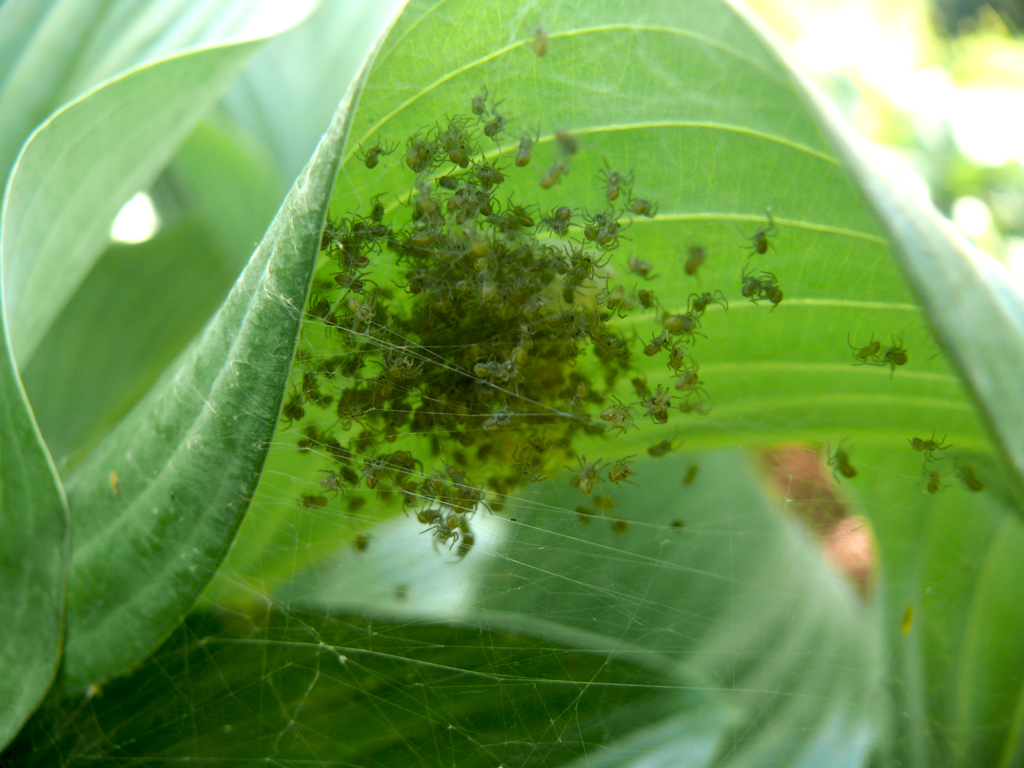
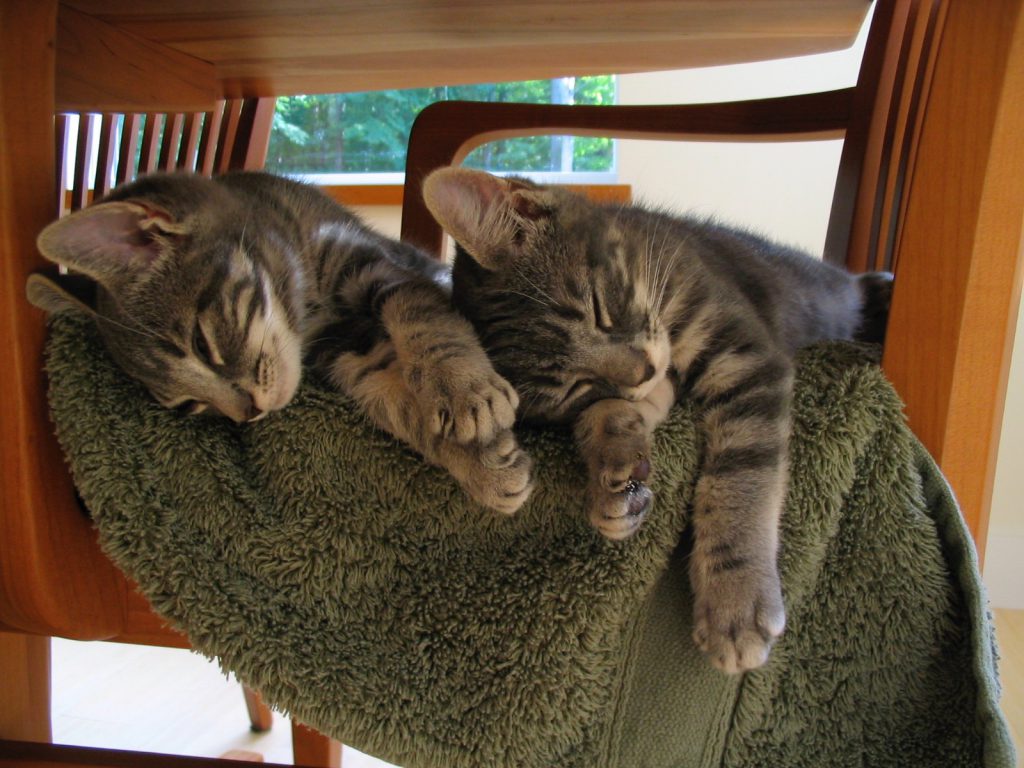

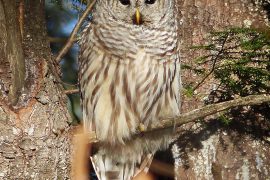
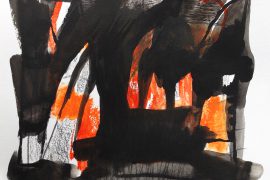
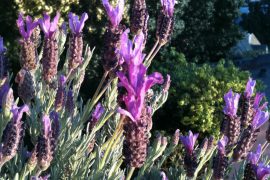
Such beautiful words, Meg. Thank you for sharing this piece of you, for allowing us this intimate, honest glimpse. You are a beautiful soul.